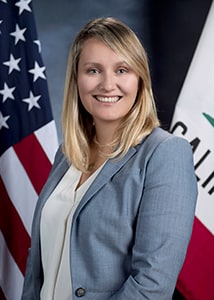“if the person was not more than ten years older than the minor at the time of the offense” – Assembly analysis of bill
Frazier, Grayson didn’t vote.
By Allen Payton
On Monday, the California State Senate and Assembly passed SB-145 Sex offenders: registration, authored by Sen. Scott Wiener, (D-11, San Francisco), exempts defendants convicted of specified, non-forcible sex offenses involving minors from mandatory registration as a sex offender. State Senators Steve Glazer (D-7, Orinda) and Nancy Skinner (D-9, Oakland) were joined by Assemblymembers Rebecca Bauer-Kahan (D-16, San Ramon) and Buffy Wicks (D-15, Oakland) who all represent portions of Contra Costa County in voting for it.
The bill passed in the 40-member Senate by a vote of 23-10 and in the 80-member Assembly by the minimum votes required of 41-25. Seven Senators and 13 Assemblymembers, including Jim Frazier (D-11, Discovery Bay) and Tim Grayson (D-14, Concord), who also represent portions of the county, did not vote on the bill.
Wiener said about his bill, “if a young person has voluntary sexual intercourse with a minor then the offense is not automatically registerable if they are within 10 years of age of the minor and the minor is 14 years or older.”
Assembly amendments removed provisions of the bill that would have mandated that specified offenders would still have to comply with provisions of Megan’s Law, despite the fact that they would no longer be registered sex offenders.
According to the state’s Legislative Information website, this bill:
1) Exempts a person convicted of non-forcible sodomy with a minor, oral copulation with a minor, or sexual penetration with a minor, as specified, from having to automatically register as a sex offender under the Sex Offender Registry Act if the person was not more than 10 years older than the minor at the time of the offense, and the conviction is the only one requiring the person to register.
2) Specifies that a person convicted of one of those specified offenses may still be ordered to register in the discretion of the court, if the court finds at the time of conviction or sentencing that the person committed the offense as a result of sexual compulsion or for purposes of sexual gratification.
(WARNING: Graphic language) A report in the San Francisco Examiner reads, “Currently, while consensual sex between 15- to 17-year-olds and a partner within 10 years of age is illegal, vaginal intercourse between the two does not require an offender to register as a sex offender. Other forms of intercourse such as oral and anal intercourse require sex offender registration.”
The Washington Examiner reports, “Adults less than 10 years older than the minor they are convicted of engaging in oral or anal sex with are not automatically added to the sex-offender registry. The decision whether or not to add them is left up to a judge under the new bill, referred to as SB145. Under current state law, judges are given discretion to keep teenagers off the sex-offender registry for having sex with someone close to their own age, but it only applies to “penile-vaginal” intercourse, and gay and transgender rights advocates argue this discriminates against gay teenagers.”
But the bill does not just cover minors as the offender can be 10 years older than the younger partner who must be at least age 14.
According to attorney Samuel Dordulian, who represents sexual assault victims, “The goal of SB 145, according to the bill’s language, is to ‘exempt from mandatory registration under the (Sex Offender Registration) act a person convicted of certain offenses involving minors if the person is not more than 10 years older than the minor and if that offense is the only one requiring the person to register.’ But rather than amend existing law to include vaginal intercourse with a minor as an act that requires mandatory sex offender registration – which would in effect remedy what Senator Wiener apparently views as discrimination – the bill aims to make all criminal sex acts with a minor over 14 equal by providing offenders with an opportunity to evade said mandatory registration. Doing so would be a disservice to survivors of those sex offenders, to communities, and to law enforcement officials.”
“Communities would be forced to accept that sex offenders could now potentially live anonymously among law-abiding citizens,” Dordulian added.
The result of the legislation, if signed by Governor Gavin Newsom, a person 24 to 27 years old can have any kind of intercourse with a child as young as 14 and judges would no longer be required to mandate the older of the two register as a sex offender.
“I cannot in my mind as a mother understand how sex between a 24-year-old and a 14-year-old could ever be consensual, how it could ever not be a registrable offense,” said Assemblywoman Lorena Gonzalez (D-80, San Diego), one of only 10 Democrats to vote against the bill. “We should never give up on this idea that children should be in no way subject to a predator.”
A question to Glazer’s aide, Susannah Meyer was sent late Wednesday asking why he voted for the bill.
UPDATE: In response Glazer said, “I voted for SB 145 after consulting with law enforcement, including the California District Attorneys Association and the California Police Chiefs Association, which supported this bill.
This bill simply clarifies that in cases of statutory rape involving non-forcible sexual contact, the same sentences and the same registration requirements should apply no matter what kind of sexual interaction leads to the charges.
In all such cases, the perpetrator will still be required to register as a sex offender if the judge determines that this is necessary to protect public safety.”
The bill next goes to Newsom who has until the end of September to either sign or veto it.





Leave a Reply